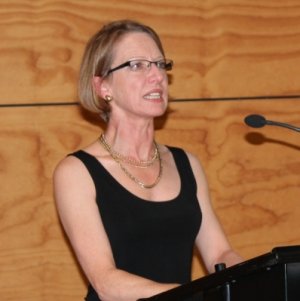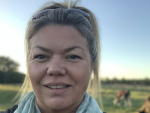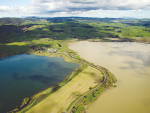New Zealand already feeds about 20 million people around the world on top of our own population -- and has the potential to feed more, a University of Waikato expert says.
Speaking at the Food and the Environment seminar on the first day of the National Agricultural Fieldays at Mystery Creek, Professor of Agribusiness Jacqueline Rowarth discussed the impact population growth, climate change and increasing regulation may have on the future of New Zealand's food exports.
In the past few decades the world's population has drastically increased, but not the amount of land used for farming and producing food, says Professor Rowarth.
"It's farmers and technology that are making the difference.
"New Zealand is surrounded by other countries who all want our food, and we have the potential to help produce it for them."
With the global population expected to exceed eight billion by 2050, she says global food demand will increase significantly.
"The question in New Zealand is: How can we produce more food? Do we have more land we can put into agriculture? Or do we improve the productivity of our existing farmland?"
Professor Rowarth says the answer lies partly in more efficient farming at home, through the application of new technology, and partly in assisting other countries to raise their food production.
University of Waikato researchers are working to help farmers increase their productivity and reduce their environmental impact, and are showcasing their innovations at Fieldays on 13-16 June.
The university is in its sixth year as a Fieldays strategic partner, and Professor Rowarth is playing a key role in delivering the Fieldays Seminar Series.
Visitors to the seminars will have the opportunity to hear about foreign land ownership, food prices and super farms - all hot topics at the moment.











